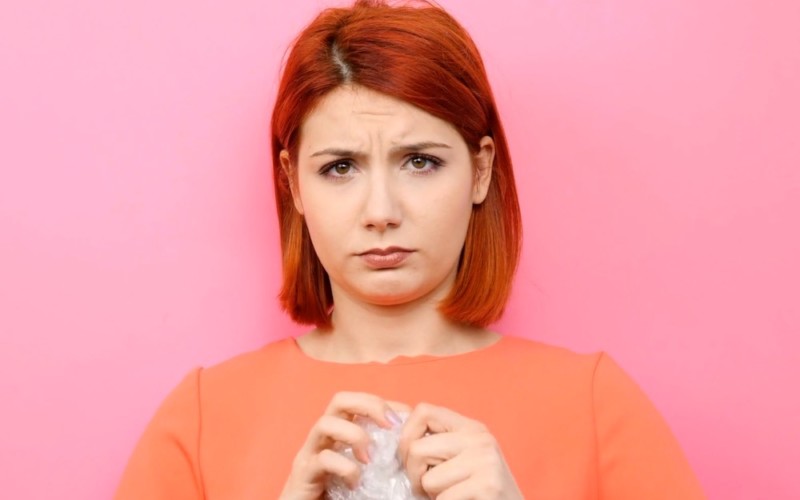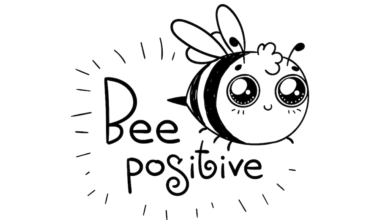Anxiety is a debilitating disorder that can be lessened with therapy and medication but the unfortunate truth is that there is no real cure. However, there are many habits that you can work into your daily life to decrease the effects of anxiety naturally. Here are some examples of how to relieve anxiety naturally by including habits in your life.
Table of Contents
What is Anxiety?
Anxiety is an intense feeling of worry, fear, or nervousness. Most people have experienced anxiety at some point in their lives, but for some, the anxiety becomes so evident that it creates problems in everyday life.
Anxiety can be experienced in many different ways. It can be an experience of fear, burning fear, intense fear, or outright panic. A certain measure of anxiety is a natural part of human life.
By feeling anxious, we are made aware of any threats in our environment, and our bodies are preparing to resist this threat.
This is done by the sympathetic nervous system that increases the activity in the body which contributes to an increased ability to either escape or fence, something called the combat or escape system.
This response has been important for human survival and helps us to prepare for the future and to plan for any challenges it may contain. Anxiety can also alert us to an unsustainable life situation and motivate us to change our lives.
But even though it is a natural human feeling, anxiety can be unpleasant. The knowledge that anxiety itself is not dangerous does not go far enough when our rational thinking is taken over by strong physical reactions and intense negative emotions.
Common Anxiety Questions Answers
1. Is it common to have sleep problems due to anxiety?
Yes, very common. Anxiety itself is a type of state of readiness that makes the body ready to deal with any type of danger. For that reason, relaxation and trying to sleep is difficult.
2. What can I do to calm my anxiety?
There are several different types of relaxation exercises that are effective. One tip is to download some relaxation app with a guided relaxation. If it is panic anxiety it is about trying to get to a quiet place where it is possible to shield from external disturbances so that it is possible to “come down” mentally.
Often it is good to take help from a friend or other close relative whom you can mentally support. In the case of a general anxiety disorder (GAD) that is lasting, the council is to seek help from a legitimate psychologist or psychotherapist. Both cognitive-behavioral therapy or psychodynamic therapy can be effective.
It is important that you feel right with the therapist you meet and that you can feel safe. It is at least as important if not more important than the therapist to use a specific method.
A new form of therapy called Acceptance and commitment therapy (ACT) is also recommended. In ACT therapy, one learns to accept the anxiety instead of fighting it, and then the anxiety is paradoxically reduced.
Related: 11 Brain Exercises to Keep Your Mind Sharp
3. Is it possible to get rid of anxiety altogether?
Anxiety is something we all have from time to time and is basically something vital. Anxiety warns you when something in life is wrong. For this reason, one should not aim to get rid of the anxiety altogether.
On the other hand, the anxiety that has a negative effect on everyday life can be reduced to a level that makes it manageable and so that you can live a good life. Especially the anxiety that arises completely unnecessarily, when you really have nothing to fear or worry about.
Did you know that…
Every third woman and every fifth person at some point in life will suffer from an anxiety disorder.
Social costs for anxiety disorders are estimated at approximately SEK 14.8 billion per year in the form of reduced productivity, increased morbidity and mortality, and increased consumption of health care.
How to Relieve Anxiety Naturally
1. Exercise more
Exercise is one of the best forms of reducing anxiety naturally. It is not only a necessary requirement for living longer and healthier, but it also releases lots of endorphins, which are a type of hormone that makes you feel great.
If you find exercise a bit of a trudge, don’t worry; you are not alone. Don’t try just one form and then give up because you don’t like it. Keep searching until you find a type of exercise you really enjoy, and then try and do it on a daily basis.
2. Keep to a routine
Keeping a daily routine might be a wise decision for reducing anxiety naturally. And speaking of doing things on a daily basis, make sure you have a daily routine as it will keep you going, especially when you don’t feel like doing anything. If you don’t have a daily routine, and you feel a bit overwhelmed trying to write one down, start small and work your way up to a full day.
Start with just the morning part of your daily routine. Decide what time you’re going to get up each day and work from there. For example, if you have a job, you should have a routine that allows you enough time to have a shower, eat breakfast, and time to think about your day before starting it. Anxiety relief comes from routine, not chaos.
3. Sleep regularly
The best way of reducing anxiety naturally is by getting enough sleep. Getting up in the morning at a reasonable time means making sure you get enough sleep. This means you need to go to sleep at a reasonable time. So, once you have finished working on your morning routine, ensure you have a bedtime routine as well.
If you find going to sleep difficult, try to change what you’re doing before bedtime. For me, reading in bed is a guaranteed way for me to fall asleep quickly.
Also, make sure you go to bed feeling comfortable. If the weather is hot and sticky and you don’t have air conditioning, have a nice, cool shower before getting changed into your bedclothes. On the other hand, if it’s cold, you may want a warm shower before going to bed. You might also try a hot water bottle to warm up your bed before getting into it.
Related: 10 Tips for Maintaining Positive Attitude
4. Drink less caffeine
One thing that may be keeping you up at night is caffeine so drinking less of it will certainly help. Of course, having a warm drink before bed is a habit that many people enjoy, but you don’t have to stop; just change what you drink.
If you’re used to coffee or tea before bed, try hot chocolate instead. Not only is it much better for you but it will also remind you of when you were a child. Remembering your childhood is a great form to reduce anxiety naturally. Alternatively, you can drink different herbal teas for anxiety relief.
5. Enjoy life more
And speaking of nostalgia, thinking about your childhood is great but forming new memories with the children of friends and family is even better. There is nothing better than playing with children to remember that life does not always have to be complicated.
Additionally, talking to kids can give you a simpler take on life. Children see life more in black and white, and while life is never really like that, seeing it that way can sometimes help. So, try talking to kids; it can certainly help you worry less and will give you a better chance to deal with anxiety and depression.
6. Turn off the TV
The fact of the matter is that television is mindnumbing and pointless, and does nothing to help with anxiety relief. There is almost nothing on TV that has any real benefit for you. And what there is on TV that is educational can be learned in much better ways.
However, that doesn’t mean you can’t entertain yourself in other ways. Listening to the radio or reading a good book is much more beneficial. And if you want to watch a movie, don’t put on Netflix; make a night of it by going out with friends to a movie theater.
7. Stop worrying
Are you feeling anxious for no reason? I know that saying “don’t worry” is a bit like telling a person with depression to cheer up but anxiety comes from worrying and anxiety relief comes from not worrying. I know that sounds a bit simplistic but keeping things simple can help.
The fact is that most of the things you worry about are almost certainly not going to happen and if you don’t believe that, do a little experiment. Try and remember the last time you were anxious about something and whatever it was you were anxious about came true. I’m pretty sure it didn’t happen, right?.
8. Keep a journal
If you’re struggling to remember the last time you were worried about something, then you should keep a journal. Keeping a journal is not only a good way to remember all the bad things that didn’t happen, but it’s also quite simply a good idea in general.
Keeping a journal means you have a record of everything you have achieved throughout the day. Seeing those achievements adds value to your life, and a life that has value is a life with less anxiety.
9. Plan ahead
Planning ahead is another habit that is just a good idea for anxiety relief naturally. Plus, it can be incorporated into your journal and your bedtime routine. One form of anxiety relief is to know what your plans are in the future. If you know, you’ll worry less.
Getting up in the morning with a plan means you have, well, a plan. It means you stop worrying about what you are going to do during the day. That stops you from sitting around your house wasting time prevaricating.
10. Eat properly
Exercise is an important aspect of anxiety relief, but so is eating properly. No one feels good when they are eating badly; for example, fast food. Okay, that may not be exactly true. But no one feels good with the results (bad skin, bad hair, being overweight) of eating fast food, that’s for sure.
So, try and eat lots of fruit and veg, and avoid processed food. Try to cook in a healthy way as well. Frying anything that’s edible is not a good way to achieve a balanced diet. Grilling, baking, and steaming are all much better ways to cook. Also, there are many natural herbs for anxiety relief which you can try.
And there you have it; ten crucial habits for reducing anxiety naturally that not only work but are also easy to do. Don’t put them off until tomorrow, start today. And don’t forget that you don’t need to do them all in one go. Start with just one and build up.
Herbs that Reduce Anxiety
Several herbs have a calming and soothing effect. Some substances also seem to be able to alleviate the effects of stress.
1. Passionflower
Traditionally used for mild anxiety and temporary sleep problems. The herb seems relaxing, convulsive, and promotes natural sleep. In mice, an anxiolytic effect has been observed.
2. Chamomile
Has long been used in stress. It contains substances with antispasmodic effects and has also been shown to provide deeper sleep.
3. Lemon balm
Used in folk medicine as sedative and sedative and in the case of sleep problems. The essential oil has shown soothing and sleep-producing properties.
4. Hops
Has long been used as a medicine and sleep-giving agent. Research shows it improved sleep in sleep disorders, thanks to the plant’s soothing and convulsive effect.
5. Green tea
It contains the amino acid theanine, which has a relaxing effect and can partially counteract the stimulating caffeine. Some studies show that theanine can relieve anxiety and prevent some stress reactions, such as increased heart rate.
Studies in rats, also show that it can raise the level of the sedative and mood-enhancing signal substance serotonin. The effect usually comes within an hour.
In most studies, 50 to 200 mg of theanine have been used, which corresponds to up to four cups of green tea. Such quantities can hardly be consumed in the evening if you want an undisturbed night’s sleep, but theanine is also sold in the form of supplements.
6. Rhodiola Rosea
Rhodiola Rosea is known as a stimulating plant. Among other things, a Swedish study shows Rhodiola Rosea reduced fatigue and higher mental performance in stress-related fatigue. A decrease in the stress hormone cortisol was also seen.
Some studies also show that Rhodiola Rosea root can relieve anxiety and depression. Animal studies suggest that it may increase the level of the sedative and mood-enhancing signaling agent serotonin.
7. Valerian
Valerian can make us fall asleep faster and sleep deeper. When it comes to daytime anxiety, research points in different directions, but some studies show that it can alleviate restlessness and stress.
8. Magnesium
The mineral is often attributed to stress and calming properties. There is still no conclusive evidence for this, but some studies show indirect relationships.
For example, mice with a magnesium deficiency have been shown to show signs of anxiety and depression.
Magnesium can also counteract high blood pressure and insulin resistance, two consequences of prolonged stress suppression.
The body’s supply of magnesium appears to decrease in stress. For example, increased losses of magnesium in the urine of exam reading students have been observed. Good sources of magnesium are legumes, whole grains, green vegetables, nuts, and seeds.
9. St. John’s wort
Known to relieve depression, but some studies also show an effect on anxiety or stress. The sedative effect often turns out faster than the antidepressant, which usually comes after 2-4 weeks.
St. John’s wort should not be combined with other medications or birth control pills, as it may impair their effect.
No matter what caused the anxiety, you can get help. There are several forms of anxiety syndrome, such as panic syndrome, agoraphobia, and social anxiety disorder.





